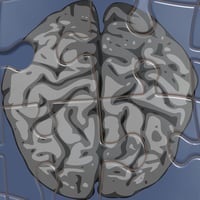Children whose fathers are experiencing greater feelings of hopelessness, worthlessness, and...
Brief Psychotherapy for Mothers May Benefit Children
 |
Holly Swartz, M.D., a professor of psychiatry at the University of Pittsburgh, and colleagues randomly assigned mothers of children aged 7 to 18 with at least one mood or anxiety disorder to receive interpersonal psychotherapy (IPT-MOMS; n=85)—a brief version of interpersonal psychotherapy specifically addressing mother-child relationship problems—or brief supportive psychotherapy (BSP; n=83)—an active control in which the patient determines the treatment agenda. Mothers were offered nine weekly 45-minute psychotherapy sessions over a three-month period. Mother and child participants were evaluated at the start of the trial and again every three months over one year.
Mothers attended an average of 7.5 psychotherapy sessions over three months. The researchers found that IPT-MOMS and BSP yielded comparable maternal response rates (defined as greater or equal to 50% reduction in the 25-item Hamilton Rating Scale for Depression), and these improvements were maintained throughout the year. Despite the similar outcomes of both treatment groups, mothers reported greater satisfaction with IPT-MOMS than BSP.
Children of mothers with depression also improved, but these improvements lagged three to six months behind maternal improvement. The study also revealed that children of mothers in the IPT-MOMS group had significantly fewer outpatient visits, and their antidepressant use from baseline to follow-up fell compared with the children of mothers in the BSP group.
“This suggests that compared to BSP, the interpersonally focused IPT-MOMS may enable mothers to help their children achieve similar improvements in mood and functioning with fewer psychiatric services and less medication exposure,” the authors wrote.
“Brief psychotherapy poses no teratogenic risk to mothers of child-bearing potential, requires limited therapist time, and imposes only limited additional burden on mothers juggling their children’s mental health needs with their own. … Having evidence of efficacy and low burden, these therapies should be offered to vulnerable families. When mothers are treated, one can anticipate a three- to six-month delay in improved child functioning, information that can help providers and families plan interim family support,” they concluded.
For related information, see the Psychiatric News article “Family-Based Intervention May Help Prevent Anxiety Disorders in Children" and the Psychiatric Services study "PRogram In Support of Moms (PRISM): Development and Beta Testing."
(Image: iStock/forsiba)





